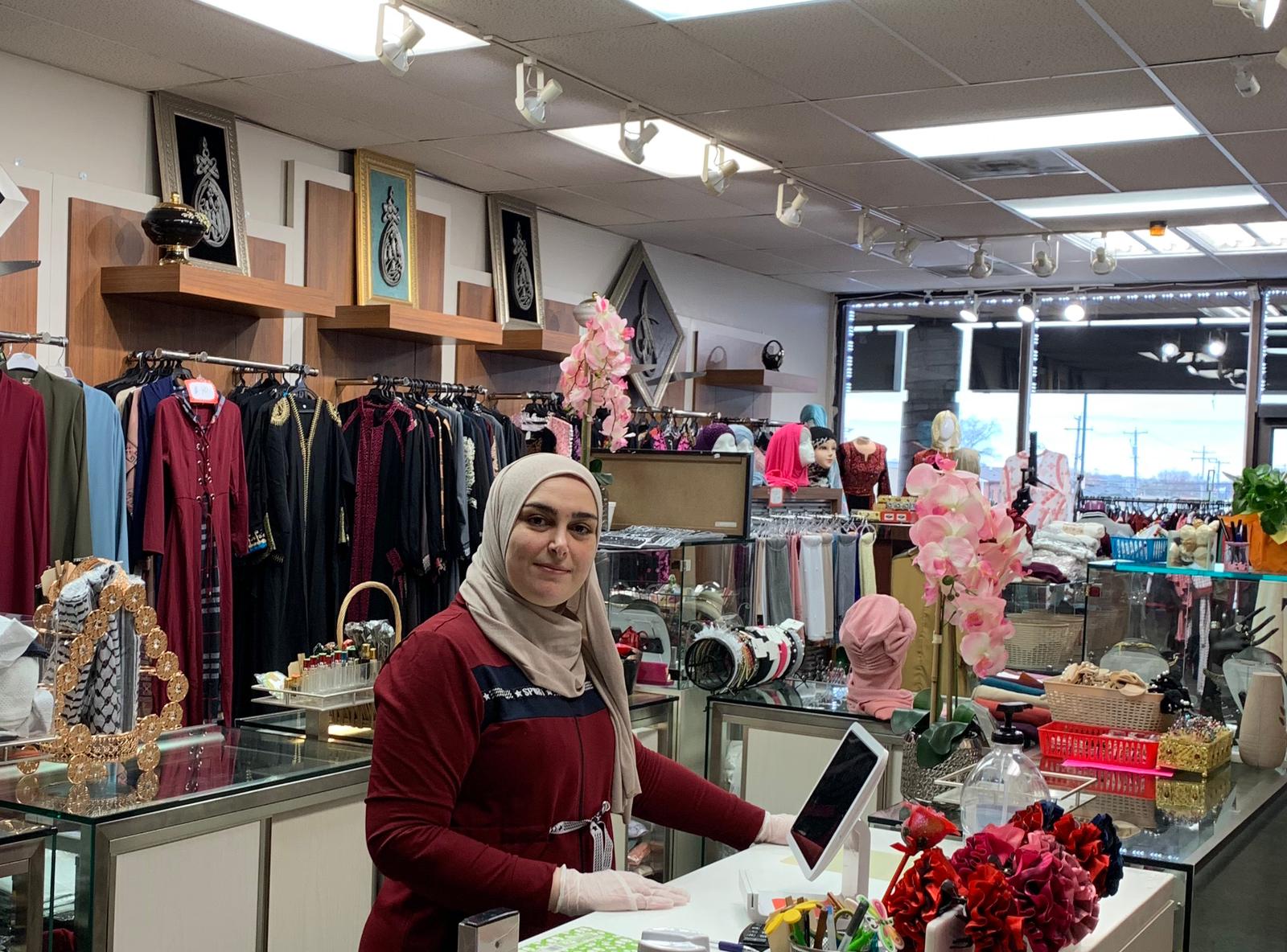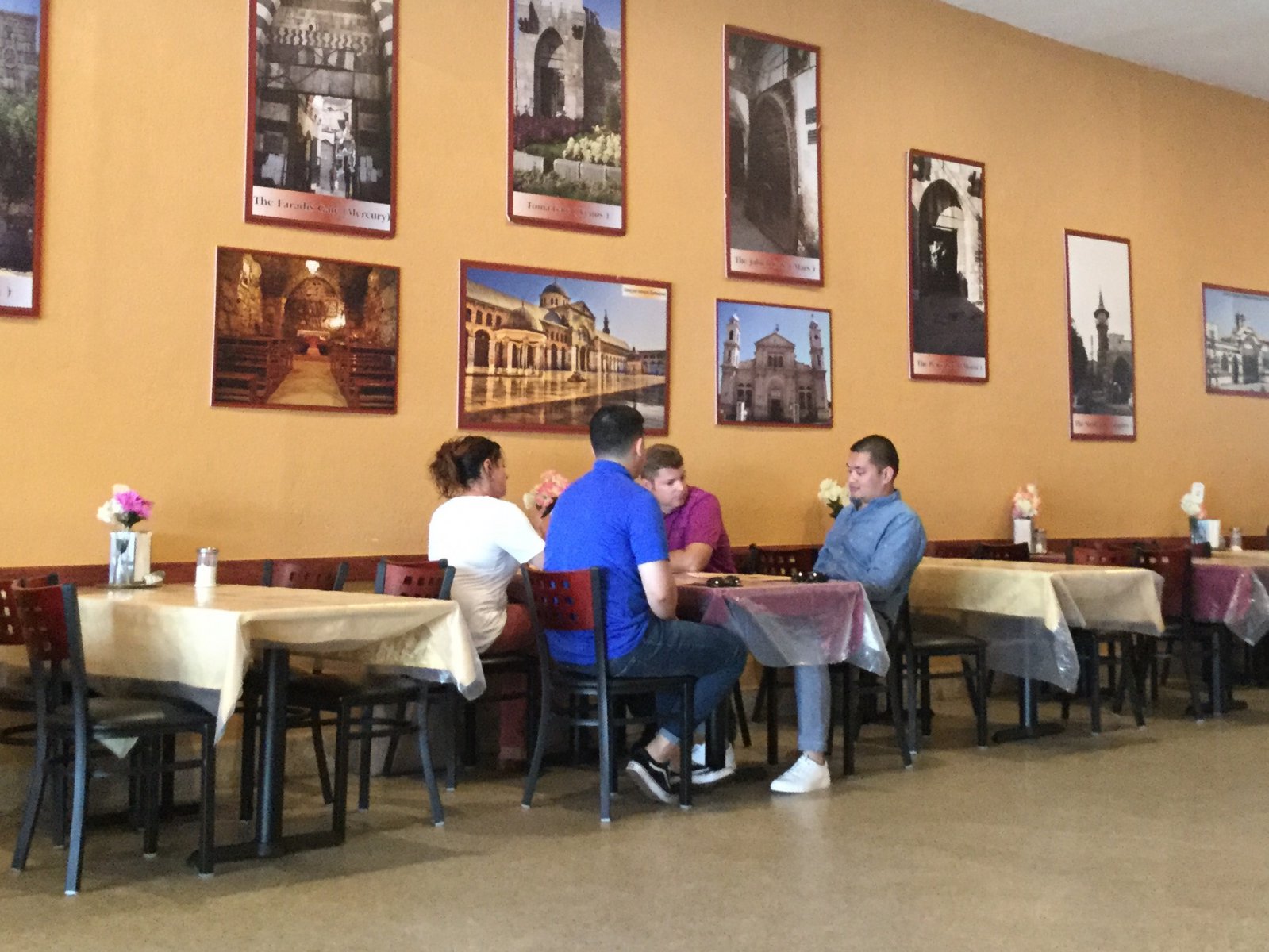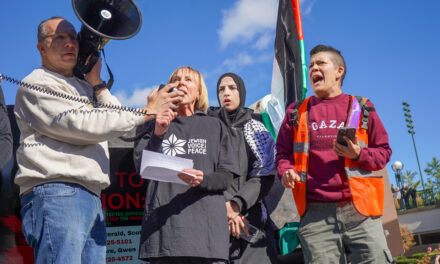Picture © Cari Taylor-Carlson for Urban Milwaukee
Muslim business owners in Wisconsin are walking a tightrope as the state gears to re-open businesses that have been closed for the past two months to slow the spread of coronavirus. On one side is the risk of contributing to the spread of a deadly, highly contagious disease; on the other, is potentially inflicting financial devastation on their employees or even their own families.
How does their faith inform their decisions about when and how to re-open?
The Wisconsin Muslim Journal talks with three Muslim business owners and a leading Islamic scholar about the difficult decisions business owners face.
First, some background on the current situation.
The push to reopen
“Effective immediately, Wisconsin is back open,” wrote State Sen. Chris Kapenga (R-Delafield), after the state Supreme Court overturned the Department of Health Services’ “Safer at Home” order Wednesday. “It is now up to each individual person to decide how restrictive they feel they need to be, instead of the government mandating it.”
Under Safer at Home, all Wisconsin businesses deemed “nonessential” have been closed for the past two months ago. The order was to end April 24, but was later extended to May 26. Republican legislators, saying the administration exceeded its authority, took their case to the Wisconsin Supreme Court.
Gov. Tony Evers’ administration began the shift this week to its Badger Bounce Back plan, which calls for a phased reopening of businesses, based on meeting benchmarks for reducing Covid-19 cases and increasing capacity in Wisconsin’s healthcare system. Evers has likened the approach to “turning a dial” rather than “flipping a switch.”
Wednesday’s Supreme Court decision flipped the switch.
Opinions about when to open businesses have largely split along partisan lines. A new Marquette Law School Poll surveying Wisconsin registered voters finds increased division over response to the coronavirus pandemic.
The threat to financial survival is real. Some small business owners report facing economic ruin. A University of Wisconsin-Oshkosh statewide Covid-19 Economic Impact Survey released in April found that one in three Wisconsin businesses will be forced to close permanently if the shutdown extends for three months.
On the other hand, so are the health risks. In a hearing before the United States Senate Committee for Health, Education, Labor and Pensions Tuesday, Dr. Anthony Fauci, the director of the National Institute of Allergy and Infectious Diseases, warned that states opening prematurely could trigger a rise in Covid-19 cases that would also set back economic recovery. “There is a real risk that you will trigger an outbreak that you may not be able to control,” he said.
Amid mixed opinions and uncertainty, Muslim business owners must decide if and how to reopen responsibly. Here’s what three business owners had to say.
A Call of Faith

Dr. Ahmad Nasef
For Dr. Ahmad Nasef, the owner of Damascus Gate, 807 W. Historic Mitchell St., Milwaukee, operating a restaurant has never been about money.
Nasef opened the Syrian restaurant a year ago in January to help refugees make a living. His eight employees include Iraqi, Syrian and Sudani refugees. He also shares ownership with them.
“I am not restaurateur by any means, said Nasef, a doctor who also owns Quality Sleep Institute at 8500 West Capital Dr., Suite 202, in Milwaukee. “I have no experience. I don’t know how to cook. But I have seen the struggles refugees go through and I have seen that if we give them a chance, the reward from Allah will be tremendous.
“My happiest day is the day I pay them their salaries,” he said. “I feel so content in my heart seeing them excited. They make plans. They feel they are productive and don’t have to ask people for money.
“What Allah and Prophet Muhammad, peace be upon him, asked us to do is to ease suffering,” Nasef said.
“My faith tells me we are not only to be happy and healthy ourselves without looking outside. If we don’t help each other, what is the purpose of our existence?
“The restaurant is not a money-maker because we don’t sell alcohol,” he added. “And the food mark-up is not that much, especially when you offer good quality food.
“We just want to stay afloat,” he said. “So far, I’m paying my bills and paying the salaries of the employees, and I didn’t let anybody go. Thank God, our customers show us great support.”
During the shutdown, Damascus Gate switched its services from dine-in to pick-up. Orders and payments are made over the phone or through delivery apps. Packaged food is placed on a table at the entrance for customers.
“Safety is the number one issue we have to focus on,” said Nasef. “From an Islamic perspective, preserving life is the key to all existence. If I’m going to jeopardize my life or somebody’s life for the sake of making a buck, I don’t want this buck. I know that God is the sustainer.”
Cleaners come in twice a day to wipe down all surfaces with chlorine and water. As employees enter, they wipe their shoes on chlorine-soaked mats, leave keys and cell phones in a designated place, and wash their hands. They wear masks and gloves “at all times.”
Nasef understands the importance of minimizing health risks. More vulnerable than most, he is being treated for cancer with both chemo and immunotherapy, and has previously had operations on his kidney, lungs and brain. “I’m wearing my 95-mask and my gloves, maintaining distance from everyone and rarely leave my house,” he said.
Nasef is optimistic and planning for the day they can bring diners back in. He expects to reduce the seating capacity by 50%, spacing tables widely and using two tables for groups of four.
“Just because the government opens the country, that doesn’t mean corona isn’t there,” Nasef said. “We will have to operate our businesses in the safest manner possible, assume the virus is there and protect each other from it.”
Stepping up

Nabil Salous

Jehan Salous
March, April and May are usually the busiest months of the year at Salous Men’s Wear & Tailoring, 3861 N. 60th Street, Milwaukee. Customers pack in to be fitted for graduation and prom dresses, wedding gowns and bridesmaid dresses, tuxedos and suits.
But in Spring of 2020, it isn’t business as usual.
“All these large gatherings have been eliminated, so my business went from extremely busy to absolutely nothing,” said Nabil Salous, who has operated this family-owned business in the same location 27 years ago. “There have been slow-downs, but I have never seen anything like this.”
With work at a standstill, Salous and his wife Bayan looked for ways to help in the community. “Part of our faith, as well as in many other faith communities, is the feeling that you don’t want to be a bystander,” said Salous. “When you see something happening, you have to step up and put your best effort to be helpful.”
“We help support the work of the Islamic Society of Milwaukee and it does many things to help the Milwaukee community. They were doing food packages for those in need,” Salous said. “Many people lost their jobs. The unemployment rate hit close to 18%, a jump from 3%, an almost fully employed economy.”
The ISM also provided meals to many frontline workers in hospital emergency rooms.
“Those people are extremely busy. They don’t have a chance to get out to grab a sandwich,” said Salous. “Our community did a great job. Of course, the need is greater, beyond our capacity, but you have to do whatever you can do.”
He saw another need as well. “I felt deep in my heart that if people wear masks that will help eliminate a lot of infections,” Salous said. So, alone in his tailor shop, he started designing masks.
“I went to work every day and each day I created different masks until I mastered it,” Salous said. Salous came up with a universal design that fits the face well, has a filter, a nose guard and a professional look, he said. It attaches above and below the ears and is easy to lower around your neck. A black and white checkered Keffiyeh design proved to be popular. All the masks sell for $10 a piece.
“They are not money makers. The idea is that I wanted to be helpful and productive, to be a positive element in the community,” Salous said. “In some cases, I donate them.”
Salous believes the world has changed. “We will wear masks. If I interact with anyone, I put my face mask on,” he said. “In our culture, we always shake hands and greet people. This had to change. So, you see people but can’t shake hands or give hugs. It was awkward in the beginning, but we had to adjust.” In the shop, the new morning routine is to sanitize all the surfaces and doorknobs, he added.
“I don’t think we will see large groups uniting together anytime soon,” Bayan mentioned. “It will be interesting to see what the future holds.”
Salous does not feel they are in danger of closing. He is eager to open. “Recovery is going to take time. It is far beyond the government saying, ‘Now you can open for business.’ It has a lot to do with the confidence of the consumer, which has diminished in the last two months,” he said.
Trust in Allah

Ibtisam Khaddour
Ibtisam Khaddour closed her Islamic fashion boutique, Morjana Fashion, at 867 W. Layton Ave., in Milwaukee, “even before they asked us,” she said. “I was worried about my workers and customers. I would feel guilty if someone got sick.
“I thought it would be for one or two weeks,” she said. “I never expected we would still be closed. It is a stressful time. There are a lot of expenses every month and those don’t stop.”
Also, Khaddour expects she is losing customers who are her becoming used to shopping online.
It’s not that she needs the money. “Thank God, my husband has work,” said Khaddour. Rather, she likes “serving the people around her.”
That is what motivated her to offer curbside delivery during the shutdown. She advertised the service on Facebook and went in a few hours every day for drop-offs and pick-ups. “I’m doing this to help with the need; it’s not going to help the store. Especially in Ramadan, people need prayer clothing and mats.”
Morjana Fashion has been opened for seven years. “I started ordering my own scarves and abayas from Jordan with the help of my family members back there,” Khaddour said. “Then friends asked me to order for them. That is how the idea came up. When people kept asking, I thought, ‘I do have customers.’”
She started working from home, then opened her shop. “Some ladies like the idea that they can shop where they can buy something to wear that no one else is wearing,” she said.
Khaddour said she is not sure what the future holds. “I feel like I’m living in a dream, waiting to wake up. I hope everything will go back to normal but I don’t expect it.”
She is trying to be very patient and trust Allah, she said. “Allah will always look for us. There is a reason this is happening.
“I do see a lot of good things. As a working mom, I realize that many other women have demanding jobs and little time to spend with their families. I am lucky that I can have days off, but life is short and the time passes quickly.
“For some, this is the first Ramadan when the whole family is at iftar. Everyone is together eating and praying as a group. It is a blessing.”
What Islam teaches us
“The first objective of Sharia law is the preservation of life. If the medical professionals unanimously agree that opening nonessential businesses will cause more deaths, then Muslims should keep theirs closed,” said Dr. Zulfiqar Shah, the religious director of the Islamic Society of Milwaukee and the Secretary General of the Fiqh Council of North America, the highest body of recognized and qualified Islamic jurists from the United States and Canada. “Money and business come after that.”
But the decision is not as simple as it sounds, Dr. Shah noted. The shutdown’s impact on the economy also causes suffering, and business owners have responsibilities to their families and their employees, he said. “Clearly, business owners must take every precaution the medical experts are recommending: masks, gloves, glass between them and their customers, and social distancing.”
He suggests business owners ask themselves, “Can I open to the extent necessary to survive for the time being, while avoiding transmission of the virus and without becoming greedy? Can I implement the safety measures necessary to keep my employees and customers safe?”














